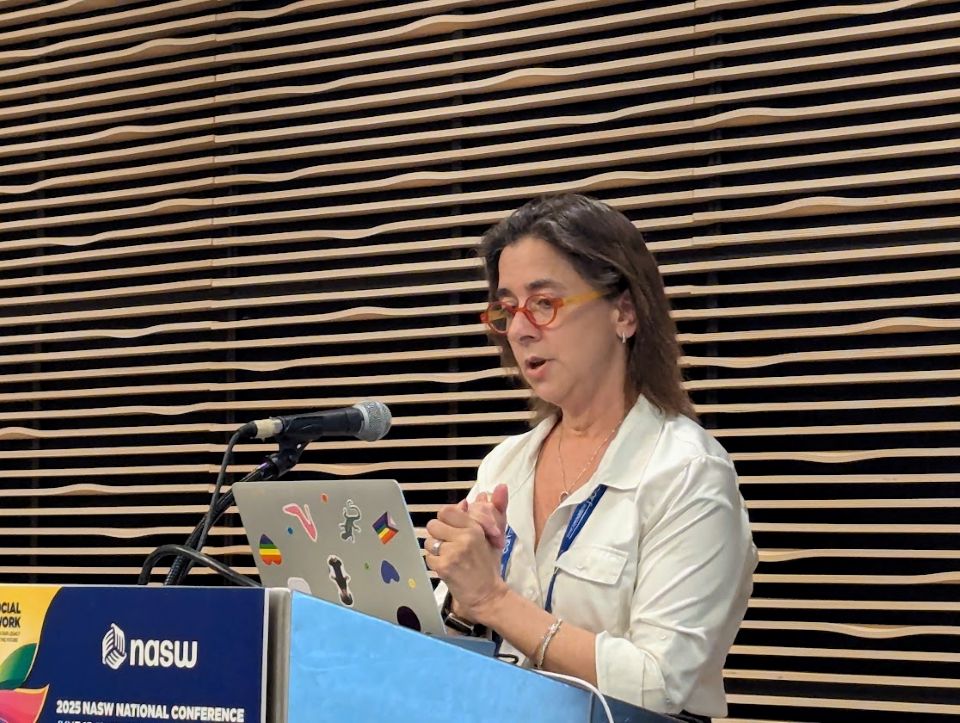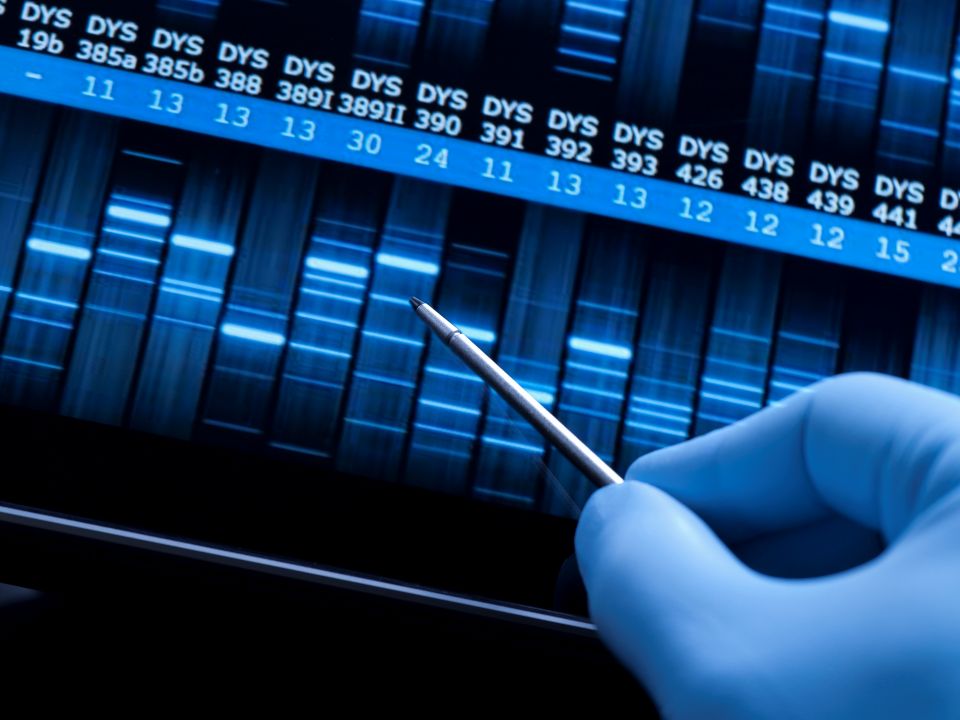Programs Address Trauma Caused by Unexpected DNA Discoveries
By Paul R. Pace
 Michele Grethel, PhD, MSW, LCSW, gives a presentation on DNA testing during NASW’s 2025 national conference in Chicago. Photo by Paul R. Pace/NASW
Michele Grethel, PhD, MSW, LCSW, gives a presentation on DNA testing during NASW’s 2025 national conference in Chicago. Photo by Paul R. Pace/NASW
With the rise of direct-to-consumer genetic testing, people are discovering unforeseen biological paternity, known as “not parent expected” (NPE) discoveries. These identity revelations can be responsible for causing a new division of trauma for those impacted, social work experts say.
The FAIR (Family Ancestry Identity Research) studies (fairdna.com), led by Michele Grethel, PhD, MSW, LCSW, with the University of Southern California’s Suzanne Dworak-Peck School of Social Work, examine the impact of unexpected DNA discoveries on individuals and families.
“As social workers, we are attuned to evolving social trends that shape our clients’ lives,” Grethel said during a breakout session she hosted at the 2025 NASW national conference in Chicago. “This phenomenon, which is often overlooked in the field, is giving rise to a new category of trauma.”
Direct-to-consumer DNA testing is a huge industry, she explained. Besides learning more about a person’s ethnicity and race, these tests can now uncover a person’s genetics and their association to identifying disease.
“It’s estimated this industry is going to blossom,” Grethel said.
Through FAIR’s work, organizers examine how adults manage the complex process of disclosing these findings to family and others, emphasizing the personal and relational impacts of such revelations.
 Photo Credit: Getty Images
Photo Credit: Getty Images
Through a study last year that interviewed 27 adults, organizers identified the “NPE disclosure dilemma,” characterized by uncertainty about sharing discoveries, anticipating others’ reactions, and coping with potential stigma, betrayal, or anger, according to FAIR. Disclosure choices are shaped by cultural context, family history, and the desire to connect with new genetic relatives to affirm identity, organizers said.
Unlike other sensitive disclosures, NPE revelations impact the entire family system, as they involve multiple relatives.
“Guided by family systems theory and the disclosure processes model, our findings shed light on the emotional complexities and identity challenges inherent in sharing unexpected genetic information in the modern era,” the organization said. The project includes links and workshops for those impacted by this trend who need individual, group and family therapy.
Grethel serves as the primary investigator for FAIR 360°, a multidisciplinary collaboration with Baylor College of Medicine and the University of Louisville. This project explores the emotional impact of DNA discoveries on all family members when misattributed parentage is revealed, Grethel said.
The FAIR 360° Project seeks to raise awareness and provide resources for those facing identity and family challenges from DNA revelations.
FAIR 360° Research Study: Status and Enrollment
This study examines how direct-to-consumer (DTC) DNA tests affect people and families when unexpected results, misattributed parentage experiences (MPEs), occur.
MPE Types:
- Not-Parent Expected (NPE): Your presumed father is not your genetic father
- Donor-Conceived (DC): You were conceived via donated sperm or eggs
- Late-Discovery Adoption (LDA): Adoption found later in life
Eligibility:
You qualify if you’ve had an unexpected DNA discovery (NPE, DC, or LDA) or are a family member affected by such a discovery.
Participation:
- One 60-90 minute phone interview
- Confidential under IRB-approved protocols
- Voluntary
Contact:
Michele Grethel, PhD, LCSW, for participation or questions: 917-797-5608; fairdna.com